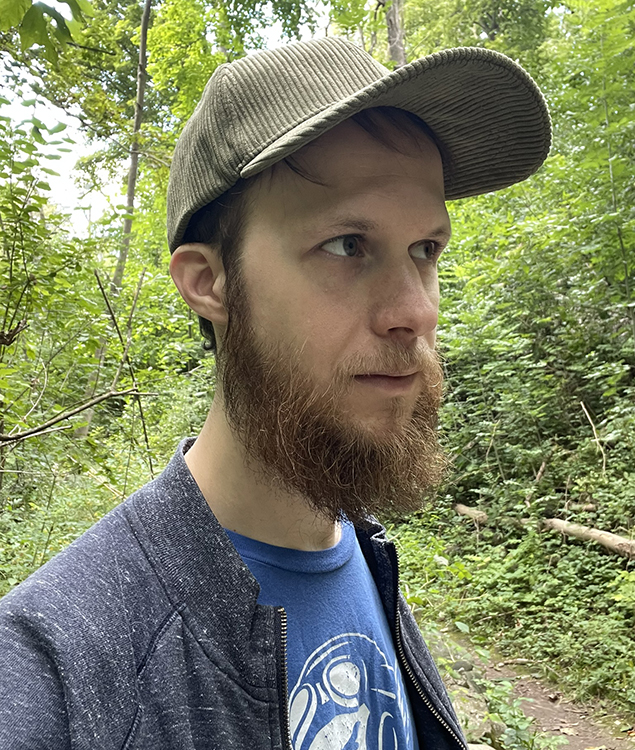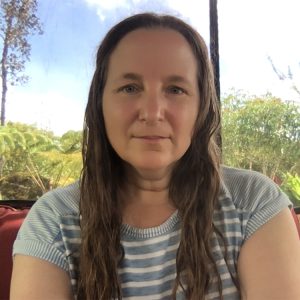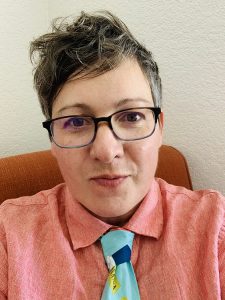The Ground Beneath Us: Place, Power, and Resistance
Call for Submissions
Editors: Amanda Ngoho Reavey and Seth Copeland
Assistant Editors: Nora Boxer and Beatrice Szymkowiak
Managing Editor: Michael McDermott
Open for submissions on January 1, 2026
Submissions due by March 10, 2026
Issue to be published May 2026

The Ground Beneath Us: Place, Power, and Resistance
“We stand on ancestral land. We walk through stolen cities. We return to sacred places. We resist with our bodies, with our breath, with our stories.”
In this current political moment marked by state repression, attacks on bodily autonomy, climate collapse, and rising authoritarianism, we are reminded that place is never neutral. It is shaped by power, haunted by memory, and pulsing with resistance.
This remarkable issue invites work that explores place as a site of struggle and survival. We seek writing and art that engage with land, home, borders, environment, and community, not as static backdrops, but as living terrains that hold grief, memory, and the seeds of transformation.
We welcome poetry, essays, fiction, hybrid work, visual art, and multimedia submissions from those rooted in activism, spirit, and justice. Emerging and established artists are encouraged to submit. In addition, we especially encourage submissions from BIPOC, Pasifika, LGBTQIA2S+, disabled, immigrant, and frontline communities whose connections to place are marked by struggle, resilience, and reclamation.
Here are some questions we want to delve deeper into that we invite you to meditate on. How do we resist displacement, erasure, or environmental destruction through our connection to place? What are the geographies of protest, healing, and communal care in your work? How do we carry the memory of land we no longer live on or are barred from returning to? What does it mean to reimagine maps, neighborhoods, and sacred ground in this political climate? How do we fight for place while honoring those who fought before us?
Possible themes include:
- Land justice and Indigenous sovereignty
- Environmental racism and ecological grief
- Gentrification, housing, and community defense
- Queer and trans geographies
- Diaspora, exile, and return
- Spiritual and ancestral ties to place
- Borders, surveillance, and belonging
We look forward to seeing your work!
Work must be submitted via Submittable by March 10, 2026.
Issue Editors

Amanda Ngoho Reavey
Amanda Ngoho Reavey is a Philippine-born, Wisconsin-raised poet, an interdisciplinary artist, and an Emerita Poetry Fellow at Black Earth Institute. Her debut book, Marilyn (The Operating System, 2015), won the 2017 Best Book Award in Poetry from the Association for Asian American Studies. Her work has appeared in About Place Journal, Petrichor, and Bramble, among others. Amanda earned her MFA from Naropa University and is currently pursuing her MSW at Concordia University-Wisconsin. She is also the Co-Vice President of the Wisconsin Fellowship of Poets, and the founder and co-host of Tabi Po Poetry Series.

Seth Copeland
Seth Copeland grew up in southwest Oklahoma. His work has appeared in Poet Lore, Painted Bride Quarterly, Puerto del Sol, The Shore, and South Dakota Review, among others. Since 2016, he has edited petrichor. Seth is a lecturer at the University of Wisconsin-Whitewater and co-host of the Tabi Po Poetry Series in Milwaukee.
Assistant Editors

Nora Boxer
Nora Boxer’s poetry has appeared in Fiolet and Wing: An Anthology of Domestic Fabulism, Catamaran Literary Reader, Pilgrimage, spiral orb: a journal of permaculture poetics, and others, and her short fiction received the Keene Prize for Literature. She has been a writer/artist-in-residence at the Art Monastery Project, Maumauworks Istanbul, The Elsewhere Collaborative, and the Byrdcliffe Arts Colony, and lived as a student-monk-in-residence at Green Gulch Farm and Tassajara Zen Centers. Nora has taught creative writing in various academic and nonprofit settings, including at UW-Milwaukee and in the adult education program at City College of San Francisco. She is currently at work completing both a PhD in creative writing at UWM and a literary eco-novel set in 2044.

Beatrice Szymkowiak
Beatrice Szymkowiak is a French-American writer, translator, and scholar. She graduated with an MFA in Creative Writing from the Institute of American Indian Arts and a PhD in English/Creative Writing from the University of Wisconsin-Milwaukee. She is the author of Red Zone (Finishing Line Press, 2018), a poetry chapbook, as well as the recipient of the 2022 Agha Shahid Ali Prize in Poetry for her full-length collection B/RDS (University of Utah Press, 2023). Her work, which focuses on environmental inquiry, has also appeared in numerous poetry magazines, including Terrain.org, The Portland Review, OmniVerse, The Southern Humanities Review, and many others.
About Place Journal Submission Guidelines
About Place Journal is published twice a year, in spring and fall. A new Call for Submissions is posted twice a year. Please review the current call and follow any specific genres called for in the upcoming issue.
Work can include:
- Poetry: up to 3 pieces which do not exceed 50 lines each. Acceptable file types include doc, docx, odt & rtf. If your poetry submission contains special formatting, we suggest submitting a PDF in addition to your Word doc.
- Fiction, essays, creative nonfiction and other prose: up to 3 pieces which do not exceed 4000 words each. Acceptable file types include doc, docx, odt & rtf.
- Audio/Visual artwork: up to 5 photographs, paintings, prints, or other forms of art. Acceptable file types include jpg & tif for still art; mp3, m4a, ogg & wav for audio; and avi, flv, m4v, mov, mp4, webm and wmv for video. Video and audio submissions should not exceed 10 minutes. For physical artwork, please include the size and media of each artwork with your list of works (if applicable).
- The total number of submitted pieces cannot exceed 5, even if your submission includes items from several genre categories.
Please provide a numbered list with the title of each work you are submitting (1 to 5 works) in the field of the Submittable form where indicated. If you are submitting photos of physical artwork, please include the artwork size and media, if applicable, in your list.
Each submission must be accompanied by a bio in doc, docx or rtf format. Bios must be in the third person and not exceed 150 words. If you want your website, Twitter, and/or Instagram links included with your bio, please include that information in the Submittable form.
By submitting, you guarantee you hold the rights to the work, and you grant About Place Journal the rights to publish the submitted work with first serial rights (FNASR). After publication, rights revert to the author. Original, previously unpublished work only. Submissions must be solely the work of the author and may not contain any AI-generated content. All pieces must be submitted through Submittable.
